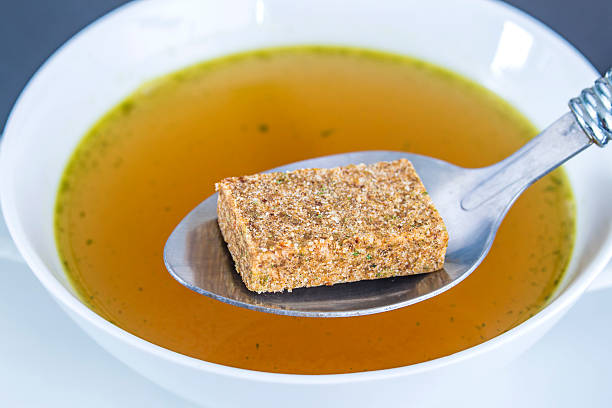Bouillon cubes originate from French culinary traditions and serve as a cornerstone in many modern kitchens. These small, compact squares capture the essence of flavors that usually require hours of cooking. Whether the base is beef, chicken, or vegetable, each cube holds an array of flavors – the concentrated taste that results from simmering broths to perfection.
Traditional seasonings, such as carrots, celery, onions, and parsley, often complement the main ingredient, offering depth and complexity. With a range of variants available, the choice of cube can significantly enhance a dish’s overall flavor profile.

On the Topic of Shelf Life
Bouillon cubes, though dry and condensed, have a defined life span. Manufacturers typically advise a storage period of 12 to 24 months. Interestingly, this timeline remains relatively stable, even if the packaging seal has been disturbed.
However, a seasoned cook will attest that while the intensity of the cubes might lessen over time, their usability extends beyond the labeled date, albeit with some adjustments in quantity.
Interpreting Package Dates
A common area of uncertainty is the date imprinted on bouillon cube packages. This date could signify several things, from the day of production to the peak of its flavor profile or even a conservative end-of-use recommendation. However, trust in one’s senses, particularly sight and smell, can provide better guidance than these printed markers.
If the cube appears consistent in color without any unusual spots and retains its signature aroma, it’s likely still a worthy addition to dishes.
Canned Versus Boxed Broths: A Consideration
When considering longevity, the packaging of bouillons and broths plays a pivotal role. Canned versions tend to have a more extended lifespan, often outlasting boxed varieties by nearly 10 months. The secure, airtight nature of cans combined with the absence of light exposure contributes to this longevity.
Identifying Aged Cubes
With time, bouillon cubes exhibit signs of aging. Obvious indicators include mold growth, color variations, or a shift in odor. However, a more nuanced approach relies on taste. If a cube lacks its initial depth or intensity, it might be past its prime. Always trust your taste buds; they rarely lead astray.
Optimal Storage Practices for Bouillon Cubes
Proper storage can enhance the life of bouillon cubes. Despite their sturdy nature, they prefer a cool, dry environment. Kitchen cabinets or pantries, located away from sources of heat and moisture, offer an ideal space. Once a cube is introduced into a broth, the resulting liquid requires refrigeration, mirroring the needs of freshly-made stocks.
Extended Storage Tips
For those keen on maximizing the lifespan of their bouillon cubes, innovative packaging techniques can be employed. The inherent salt content in these cubes not only amplifies flavor but also acts as a natural preservative. Transitioning them from their original containers to vacuum-sealed bags or Mylar pouches can extend their usability.
This additional layer shields them from environmental factors, ensuring they remain ready for future culinary adventures.
To sum up, bouillon cubes stand as compact powerhouses of flavor. With proper understanding and care, they can be indispensable allies in creating memorable dishes.

Editorial Staff
Our writers, editors, content managers, and SEO specialist. We all take part in crafting amazing articles. We spend hours ensuring that each article is based on facts, researched, and thorough. You'll never want to click the back button to look for more answers other than here!
